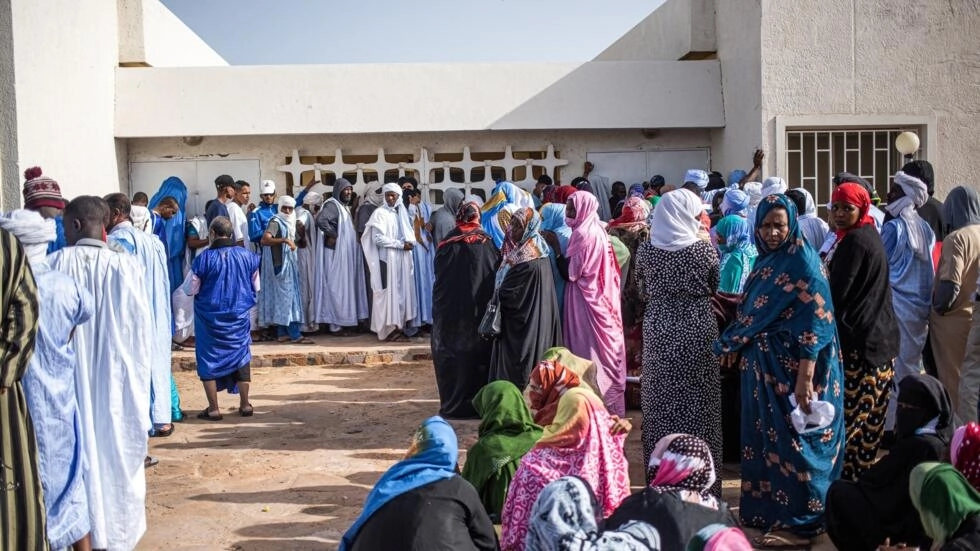Voters in Mauritania went to the polls on Saturday (13 May) in the first local elections since President Mohamed Ould Ghazouani came to power in 2019.
It is being seen as a test of the leader’s popularity ahead of presidential elections next year in which he has not yet confirmed his decision to stand.
However, Ghazouani, who has overseen the West African country’s relative stability in the violence-wracked Sahel, is widely expected to seek re-election.
Voter Mahfoud said: “We would like these elections to bring out patriotic men who will work to boost the economy and reduce unemployment.”
Ghazouani’s El Insaf party is favoured to win among the 25 parties vying for the backing of around 1.8 million voters, who are set to choose 176 members of parliament as well as 15 regional councils and 238 municipal councils
El Insane is the only party to field candidates in all constituencies across the country for the 13 May election.
Heading to the polls, another voter, Zahra, said: “We want the candidates to honour their commitments to the voters, especially the women to whom they have promised development in all areas.”
El Insaf’s leading challengers are the Islamist movement Tewassoul, the main opposition party in the outgoing parliament, and the Arab nationalist Sawab.
Results from the first round of voting are expected within 48 hours of poll closings. A second round is scheduled for May 27 for half of the 176 National Assembly seats.
Ghazouani, 66, is a general considered one of the main architects of Mauritania‘s success against jihadism, in his former role as army chief.
The country’s population is divided between Arab-Berber Moors, Afro-Mauritanian descendants of slaves, and other groups of sub-Saharan African origin.
Ghazouani made the fight against poverty one of his priorities, carrying out an ambitious social programme that has included distributing food and money to the poorest.
But the economy has slowed since the Covid-19 pandemic, and rising inflation due to the war in Ukraine has put cost-of-living concerns for the forefront.
El Insaf had a comfortable majority in the previous parliament, and analysts have predicted little threat from rival parties.
The Tewassoul Islamists are seeking a strict application of Islamic law, and are again expected to be the main opposition group in parliament.
Sawab is allied with the anti-slavery activist Biram Dah Abeid, the runner-up in the last presidential election, who has long advocated for the descendants of slaves, a community to which he belongs.
